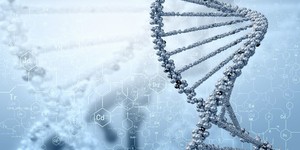The World Health Organization (WHO) has prequalified its first biosimilar – trastuzumab – in a move that the organization says, ‘could make this expensive, life-saving treatment more affordable and available to women globally’.
The WHO prequalification of medicines is a service provided by the organization to assess the quality, safety and efficacy of medicinal products. It was started in 2002 in partnership with UNAIDS (Joint United Nations Programme on HIV/AIDS), UNICEF (United Nations Children's Fund) and the UN Population Fund, with support from the World Bank [1]. At the end of 2019, the WHO List of Prequalified Medicinal Products contained 558 medicines.
The WHO launched a consultation on its pilot project for prequalifying biosimilars in October 2017 [1] and launched the prequalification project for rituximab and trastuzumab in July 2018.
The breast cancer treatment, which is supplied by Samsung Bioepis, was assessed by WHO and was found to be comparable to the originator product in terms of efficacy, safety and quality. It is now eligible for procurement by United Nations agencies and for national tenders.
The ‘WHO prequalification of biosimilar trastuzumab is good news for women everywhere’, according to Dr Tedros Adhanom Ghebreyesus, WHO Director-General. The global average cost of originator trastuzumab is US$20,000, a price that WHO says ‘puts it out of reach of many women and healthcare systems in most countries’. According to WHO, biosimilar trastuzumab is generally 65% cheaper than the originator. The organization expects that ‘with this WHO listing, and more products expected in the prequalification pipeline, prices should decrease even further’.
The prequalification of trastuzumab and future prequalified biosimilars is also expected to ‘avoid more preventable deaths’. A recent study of breast cancer in sub-Saharan Africa found that of 1,325 women surveyed in three countries, cancer treatment had not been initiated within one year of diagnosis for 227 (17%) women and for 185 (14%) women with stage I-III disease. Self-reported treatment barriers confirmed treatment costs as a major contributor to not receiving treatment.
In November 2019, WHO also launched a prequalification programme for biosimilar insulin [2].
Related articles
WHO prequalifies antiparasitic API
WHO prequalifies first generic hepatitis C drug
References
1. GaBI Online - Generics and Biosimilars Initiative. WHO launches consultation on prequalification of biosimilars [www.gabionline.net]. Mol, Belgium: Pro Pharma Communications International; [cited 2020 Jan 17]. Available from: www.gabionline.net/Biosimilars/General/WHO-launches-consultation-on-prequalification-of-biosimilars
2. GaBI Online - Generics and Biosimilars Initiative. WHO launches insulin prequalification programme [www.gabionline.net]. Mol, Belgium: Pro Pharma Communications International; [cited 2020 Jan 17]. Available from: www.gabionline.net/Biosimilars/General/WHO-launches-insulin-prequalification-programme
Permission granted to reproduce for personal and non-commercial use only. All other reproduction, copy or reprinting of all or part of any ‘Content’ found on this website is strictly prohibited without the prior consent of the publisher. Contact the publisher to obtain permission before redistributing.
Copyright – Unless otherwise stated all contents of this website are © 2020 Pro Pharma Communications International. All Rights Reserved.








 0
0











Post your comment